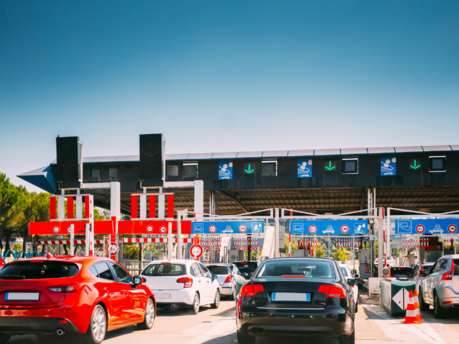Paying to Get Around: An Overview of Toll Roads in the UK
In this article, we discuss an overview of the major toll roads in the UK and the pricing structures drivers can expect to see when using them.
Whilst free-to-access roads built with public money make up much of the UK’s infrastructure, several routes require drivers to pay a small toll fee to use them. Though limited in number compared to some other countries, UK toll roads and bridges are still an important part of the transportation network. In this article, we discuss an overview of the major toll roads in the UK and the pricing structures drivers can expect to see when using them.
The UK’s toll road system includes bridges, tunnels and roads spanning different parts of the country. The costs range from £1.50 up to £6.70 for standard cars using cash or card payments.
M6 Toll Road
 Source
Source
One of the most used toll routes in the UK is the M6 Toll Road in the West Midlands by Birmingham. As the country’s primary north-south motorway, heavy passenger and freight traffic often backs up the M6 motorway. To help address congestion issues, the M6 Toll Road was constructed in 2003. This privately financed route stretches 27 miles from junction 11a to junction T8 of the M6, allowing drivers to bypass the crowded middle stretch of the M6 through greater Birmingham.
As the UK's longest toll road, drivers pay £6.70 by cash or card. Discounts apply to electronic tag account holders and frequent users.
Dartford Crossing

The Dartford Crossing is a major toll crossing that spans over the River Thames, connecting Essex to Kent in southeast England. Operated by Highways England, it consists of two tunnels and the Queen Elizabeth II Bridge. Over 50 million vehicles cross the Dartford Crossing each year, making it one of England's busiest roads. The toll helps pay for maintenance and operations. As traffic volumes continue growing, there are ongoing debates about upgrading the heavily-used Dartford Crossing or supplementing it with a new lower Thames road crossing to alleviate congestion issues. But for now, it remains a vital river crossing on one of Britain's most economically important transport arteries.
There is a toll fee required for eastbound traffic only, with cars charged £2.50 if paying by cash, £2.20 with a registered electronic payment account, and higher rates for large vehicles.
River Crossings and Bridges
In addition to purpose-built toll highways, several river crossings in the UK also involve tolls, most notably bridges. River tolls exist for single crossings as well as back-and-forth journeys. Prices are typically under £5 each way for passenger vehicles.
- Second Severn Crossing - Links England and Wales by crossing the River Severn. Cost is £6.70 for a car.
- Skye Bridge - Connects the Isle of Skye to the mainland of Scotland. Cost is £2.70-8.40 depending on vehicle type.
- Mersey Gateway Bridge - Spans the River Mersey between Runcorn and Widnes. Cost is £2.00 for a car.
- Tyne Tunnels - Two vehicle tunnels under the River Tyne connecting Howdon and Jarrow. Cost is £1.90 for a car for a return ticket.
- Humber Bridge - Spans the Humber Estuary linking Yorkshire and Lincolnshire. Cost is £1.50 for a car.
Payment Methods
Most tolls can be paid debit/credit card or prepaid electronic tag, very few tolls now accept cash. The electronic tags, such as Eazypass, often allow you to pay discounted rates. Make sure to research the available payment options for any toll road or bridge you wish to use.
Electronic Tags
To improve traffic flow and make payment more convenient, electronic tag accounts like Eazypass are available for most toll routes. Tags are small dashboard-mounted devices that automatically deduct fares as drivers pass under overhead gantries. They allow access to discount plans with reduced rates that save regular travellers 10-15%. For example, the Humber Bridge offers tag users 5-10% savings over cash payments.
Scottish Tolls
While the majority of UK toll roads and crossings are located in England, Scotland has a handful of toll facilities too. These include the Skye Bridge (£5.30 with tag accounts) providing access between Kyle of Lochalsh and the Isle of Skye as well as two crossings between Edinburgh and Fife – the Forth Road Bridge (£1.50) and Queensferry Crossing (£1.25). Additionally, a few car ferries near the Scottish islands charge fares year-round.
Future Changes
The UK government has considered abolishing certain tolls once construction debts are paid, but no firm commitments have been made regarding routes like the Second Severn Crossing. Some facilities may be turned over to public ownership and made free in coming years while other toll projects remain indefinitely under private management. Going forward, toll costs might rise marginally based on inflation and infrastructure needs.


